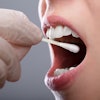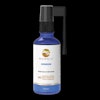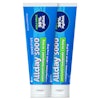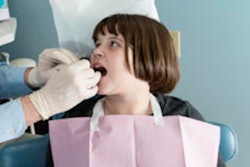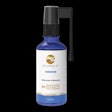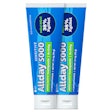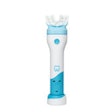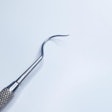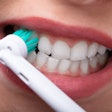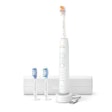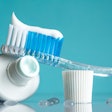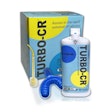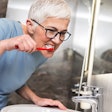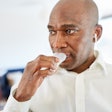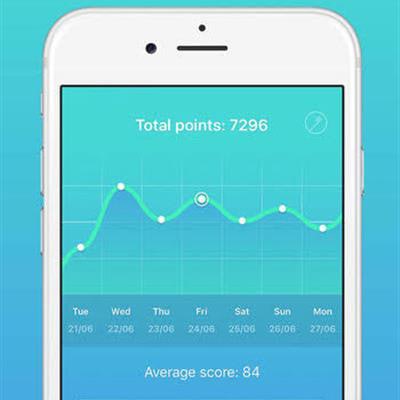
A smartphone application could be the perfect tool to help your patients brush better. A new study found that patients who used an application with brushing feedback experienced a 70% reduction in plaque within just four weeks.
The research comes from one of just a few randomized clinical trials to study the impact of health-related smartphone applications. The results, which were published on April 12 in the British Dental Journal, suggest that similar applications may have unprecedented benefits.
"By undertaking such a study, we have demonstrated that a smartphone app, in conjunction with a small toothbrushing device, is highly effective in promoting toothbrushing," wrote the authors, led by Elizabeth Kay, BDS, MPH, PhD, editor of the journal Evidence-Based Dentistry. "The plaque reductions achieved were more than twice the 30% [that] systematic reviews and meta-analyses have shown are generally achieved in surgery-based toothbrushing trials."
Growing acceptance of health-related apps
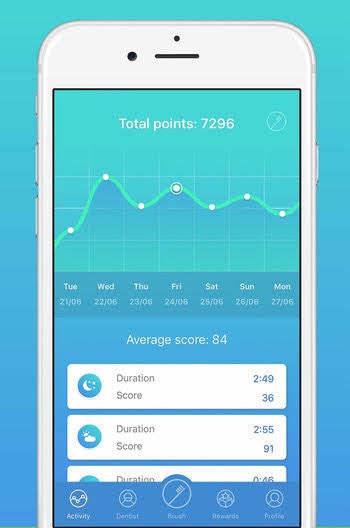 The Brushlink smartphone app provides brushing feedback. Image courtesy of Brushlink.
The Brushlink smartphone app provides brushing feedback. Image courtesy of Brushlink.Most people say they brush their teeth on a regular basis, yet many adults still experience plaque-based oral diseases. The researchers wondered whether a smartphone application with brushing feedback could improve the general population's toothbrushing habits and ultimately reduce plaque.
To find out, they recruited about 100 participants from two general dental practices. All participants were given oral hygiene instructions, and half were also randomly assigned to receive Brushlink, a device that attaches to a toothbrush handle and gives brushing feedback through a smartphone application.
The researchers measured all participants' plaque levels at baseline, after two weeks, and after four weeks. Plaque scores improved for both groups of patients. However, those who used Brushlink experienced a 70% reduction in decay, almost twice the percentage of those in the control group.
Some participants also answered a survey about their experience with Brushlink. The respondents emphasized the tool's ease of use, helpful brushing education, and built-in two-minute timer.
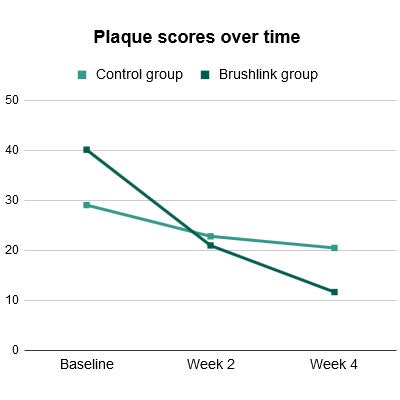
"This is the first [randomized clinical] trial of an oral hygiene app," the authors wrote. "It has shown the app to be twice as effective as conventional oral hygiene advice and instruction. The app has the potential to promote population oral health and has offered researchers a very valuable research tool."
Where are the randomized clinical trials?
The researchers did not list any shortcomings for their study; however, they did note that lead author Dr. Kay is a member of the Brushlink Scientific Committee. She has no financial or commercial connection with the organization, according to the study authors.
They also noted there is a lack of similar randomized clinical trials into health-related smartphone applications. As these apps grow more prevalent, they hope researchers conduct scientific studies to test their utility to improve overall and oral health.
"Given the growing societal trend of increasing demand for health-related apps and increasing consumer acceptance of technology to support healthy behaviors, it is timely to undertake proper scientific inquiry into the effectiveness, efficiency, and accessibility of oral health-related apps," the authors wrote.
